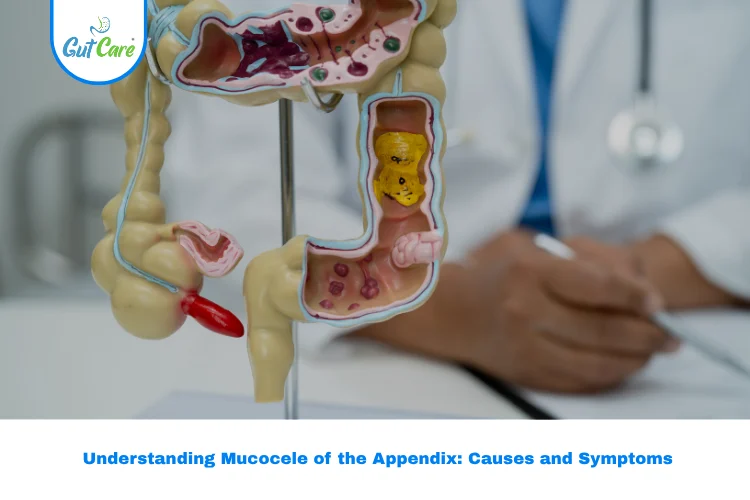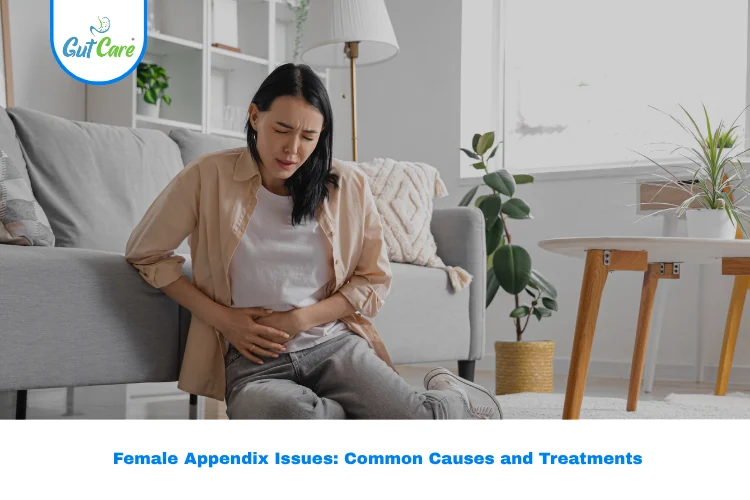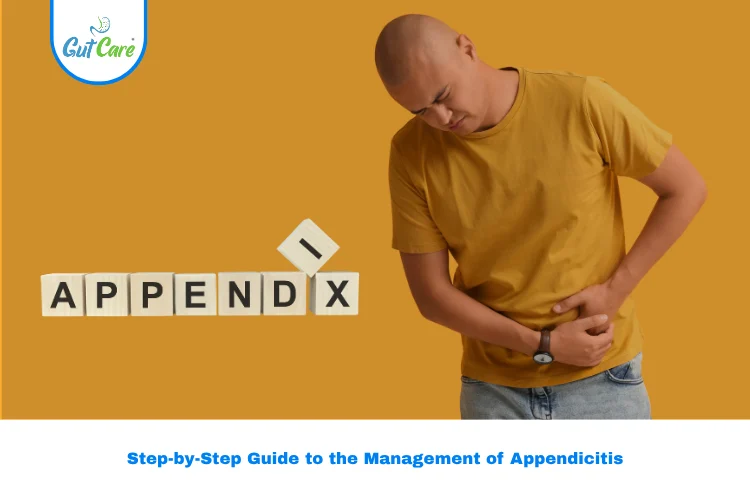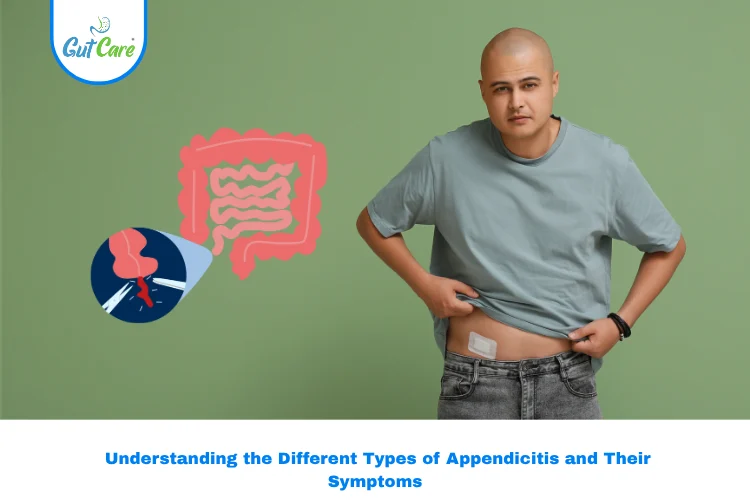The mucocele appendix is a rare but significant condition affecting the appendix, often discovered during routine imaging or surgery for other abdominal issues. At Gutcare Clinics in Bangalore, Dr. Yuvrajsingh Gehlot, an experienced colorectal surgeon, emphasizes the importance of early detection and proper management to prevent complications. Understanding the signs, appendix pain symptoms, and underlying causes can help patients seek timely medical attention.
What is Mucocele of the Appendix?
A mucocele appendix refers to the abnormal accumulation of mucus inside the appendix, causing it to swell. The condition may range from benign retention cysts to more serious neoplastic lesions. The swelling occurs due to obstruction of the appendix lumen, which can involve the mesoappendix or result from inflammation or scarring.
Causes of Mucocele Appendix
Several factors may lead to the development of a mucocele appendix, including:
- Obstruction of the Appendix Lumen: Blockage due to fecaliths, inflammation, or adhesions can lead to mucus accumulation.
- Appendiceal Tumors: Rare neoplasms can cause excessive mucus production.
- Chronic Appendicitis: Long-standing inflammation may contribute to appendix dilation.
- Congenital Abnormalities: Some individuals are predisposed due to anatomical variations.
Understanding what causes appendix issues is crucial for identifying at-risk patients and preventing progression.
Symptoms and Signs of Mucocele Appendix
Most patients with a mucocele appendix may not show obvious symptoms in the early stages. However, as it enlarges, some common signs and symptoms include:
- Right lower abdominal pain – often dull or persistent.
sometimes felt during examination. - Changes in bowel habits – constipation, diarrhea, or alternating patterns.
- Nausea and vomiting – due to pressure or obstruction.
- Appendix pain symptoms – similar to appendicitis, such as localized tenderness.
In some cases, mucocele appendix is discovered incidentally during imaging or surgery for other conditions. Persistent abdominal discomfort should not be ignored, as timely diagnosis prevents complications.
Since these symptoms overlap with appendicitis symptoms, accurate diagnosis by a colorectal surgeon like Dr. Yuvrajsingh Gehlot is essential.
Diagnosis of Mucocele Appendix
Diagnosing a mucocele appendix often begins with clinical evaluation of abdominal pain and related symptoms. Imaging studies such as ultrasound and CT scan are the most reliable tools to detect the cystic swelling in the appendix. These tests help differentiate mucocele from other appendix or bowel conditions. In some cases, MRI or colonoscopy may also be used for confirmation. Early and accurate diagnosis is crucial to prevent complications like rupture or malignancy.
Proper diagnosis involves a combination of:
- Medical History & Physical Examination: Assessing abdominal pain, mass, or tenderness.
- Imaging Techniques: Ultrasound and CT scans help identify cystic swelling and involvement of the mesoappendix.
- Blood Tests: May show inflammation or infection markers.
- Surgical Exploration: In some cases, laparoscopy confirms the diagnosis and allows treatment simultaneously.
Early detection reduces the risk of rupture, infection, or malignant transformation.
Potential Complications
If left untreated, a mucocele appendix may lead to:
- Rupture of the Appendix: Causing peritonitis or widespread infection.
- Pseudomyxoma Peritonei: Rare, but serious condition with mucus accumulation in the abdominal cavity.
- Chronic Pain: Persistent discomfort affecting daily life.
- Increased Surgical Risks: Delay in treatment complicates surgery and recovery.
Management and Treatment
Treatment depends on the severity and type of mucocele:
- Surgical Removal: Laparoscopic appendectomy is the preferred method, especially for cystic or neoplastic mucoceles.
- Observation for Small Benign Lesions: In select cases, careful monitoring may be recommended.
- Postoperative Care: Follow-up imaging and consultations ensure complete resolution.
Consulting a skilled colorectal surgeon ensures proper management and prevents recurrence.
Prevention and Awareness
While mucocele appendix may not always be preventable, early attention to appendix pain symptoms and routine medical checkups can reduce risks. Avoiding delays in addressing abdominal pain, maintaining digestive health, and seeking expert care are key preventive strategies.
Conclusion
A mucocele appendix can be a silent yet serious condition. Understanding its causes, signs, and symptoms is crucial for timely diagnosis and treatment. At Gutcare Clinics Bangalore, Dr. Yuvrajsingh Gehlot provides expert care, combining modern surgical techniques with patient-focused guidance. Early consultation ensures better outcomes, minimizes complications, and promotes long-term digestive health.
FAQs
1.What is a mucocele appendix?
A mucocele appendix is the swelling of the appendix due to mucus accumulation, often caused by obstruction or inflammation.
2.What are the common signs of mucocele appendix?
Symptoms include lower right abdominal pain, nausea, bloating, and sometimes a palpable mass in the abdomen.
3.Can a mucocele appendix lead to appendicitis?
Yes, if untreated, it can mimic or trigger appendicitis symptoms, requiring prompt medical evaluation.
4.How is mucocele appendix diagnosed?
Diagnosis involves physical examination, imaging like CT or ultrasound, and sometimes surgical exploration.
5.Does Gut care Clinics treat mucocele appendix?
Yes, at Gutcare Clinics Bangalore, Dr. Yuvrajsingh Gehlot provides advanced diagnosis and surgical treatment for mucocele appendix.




